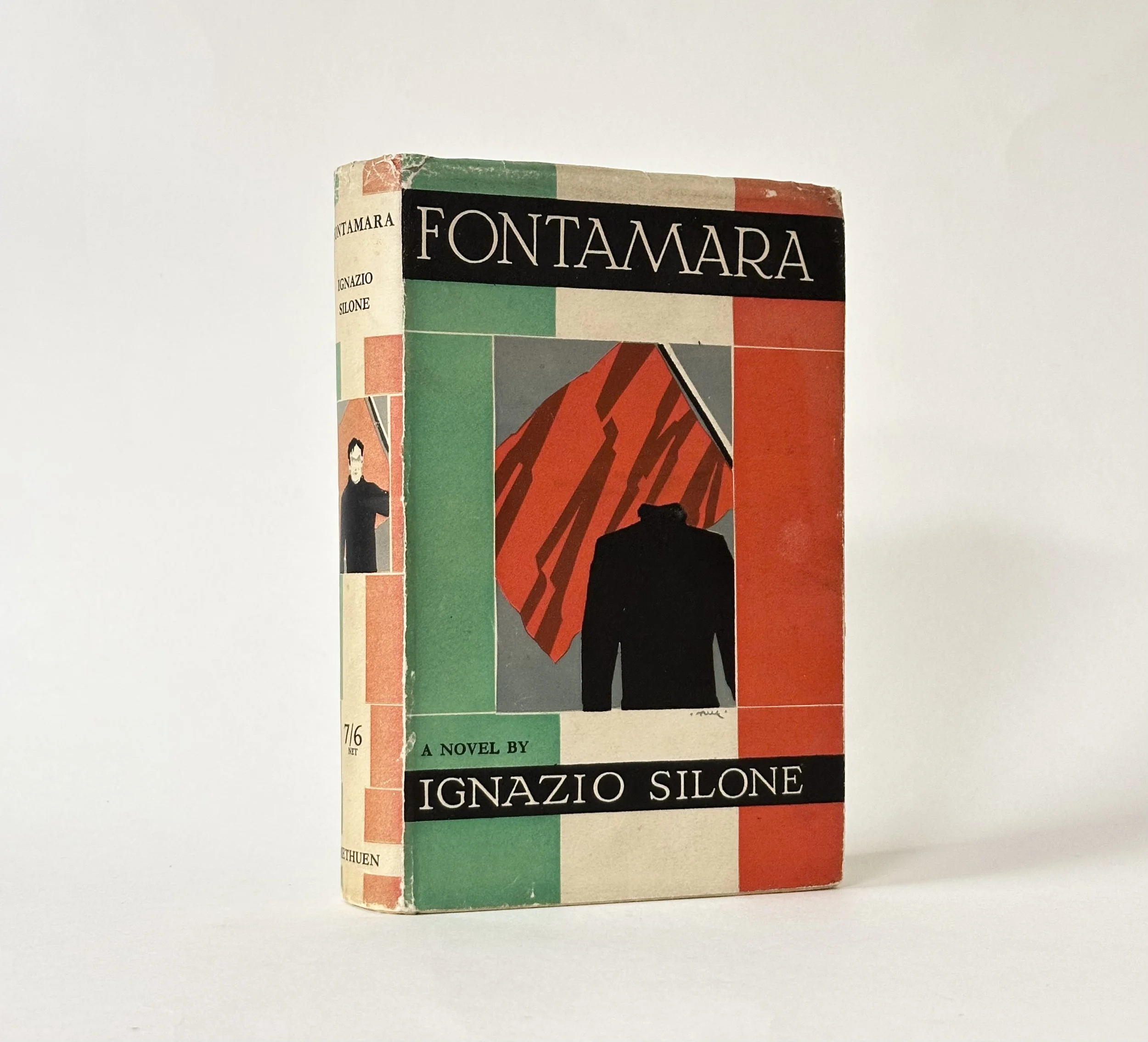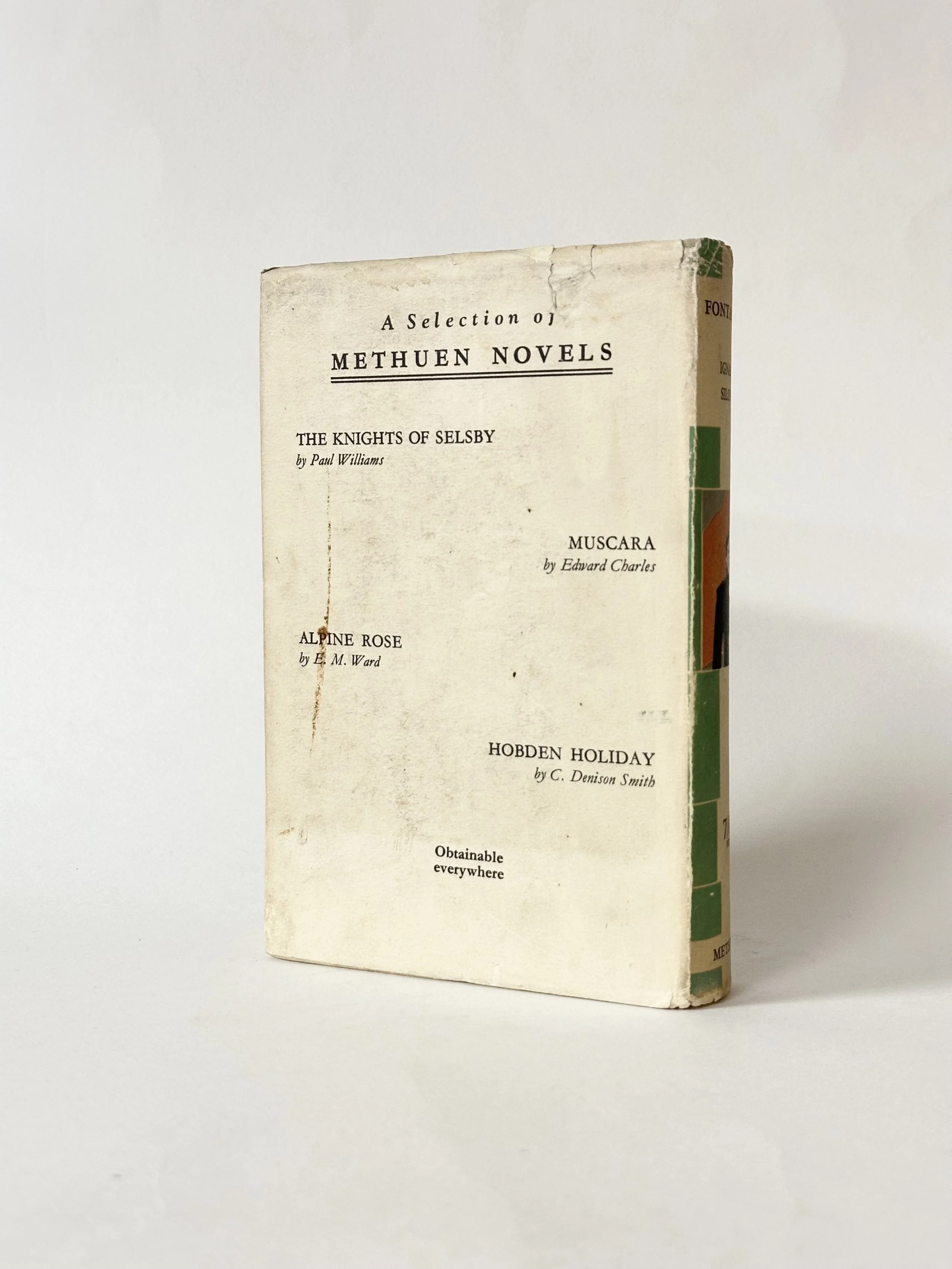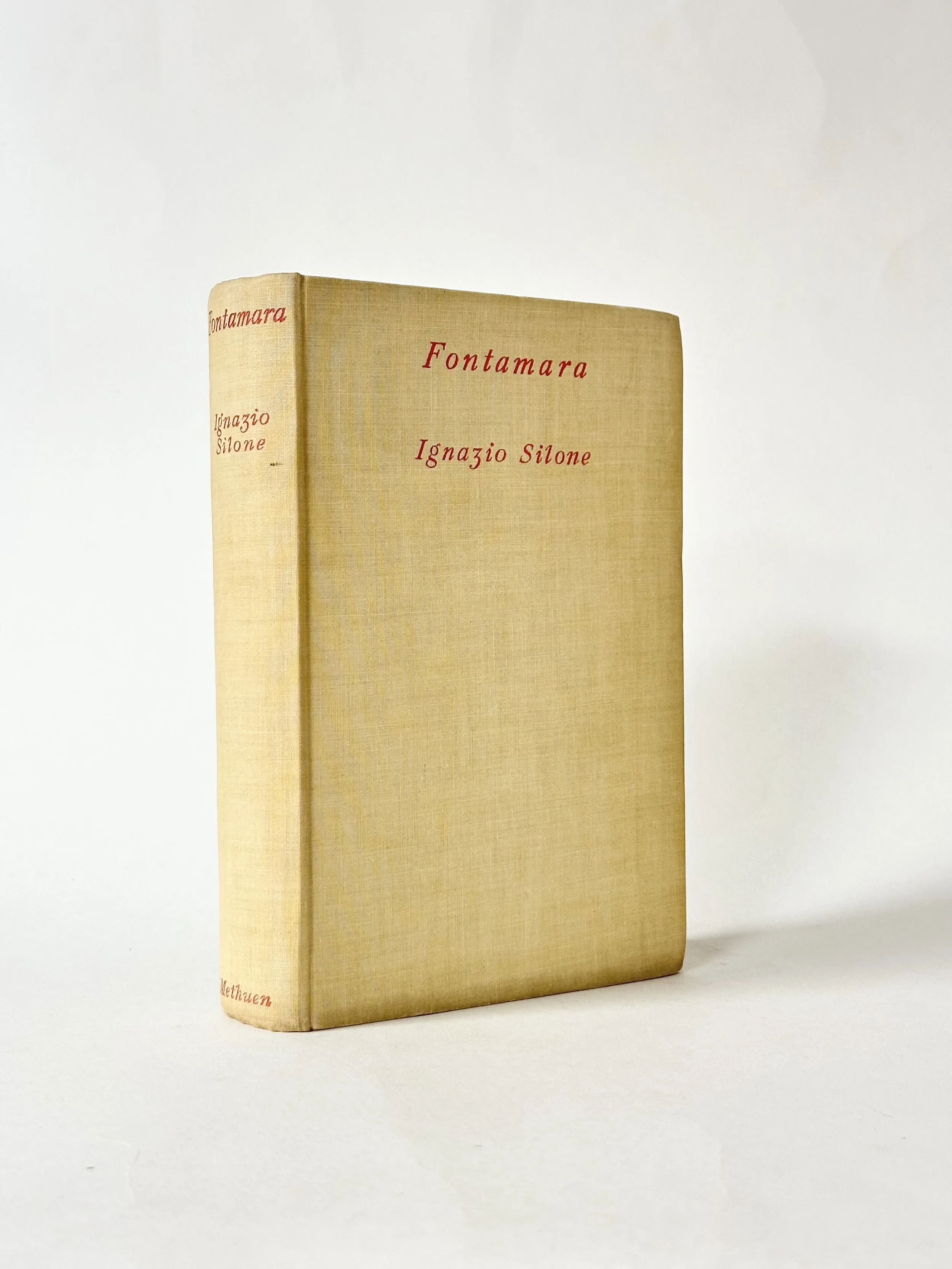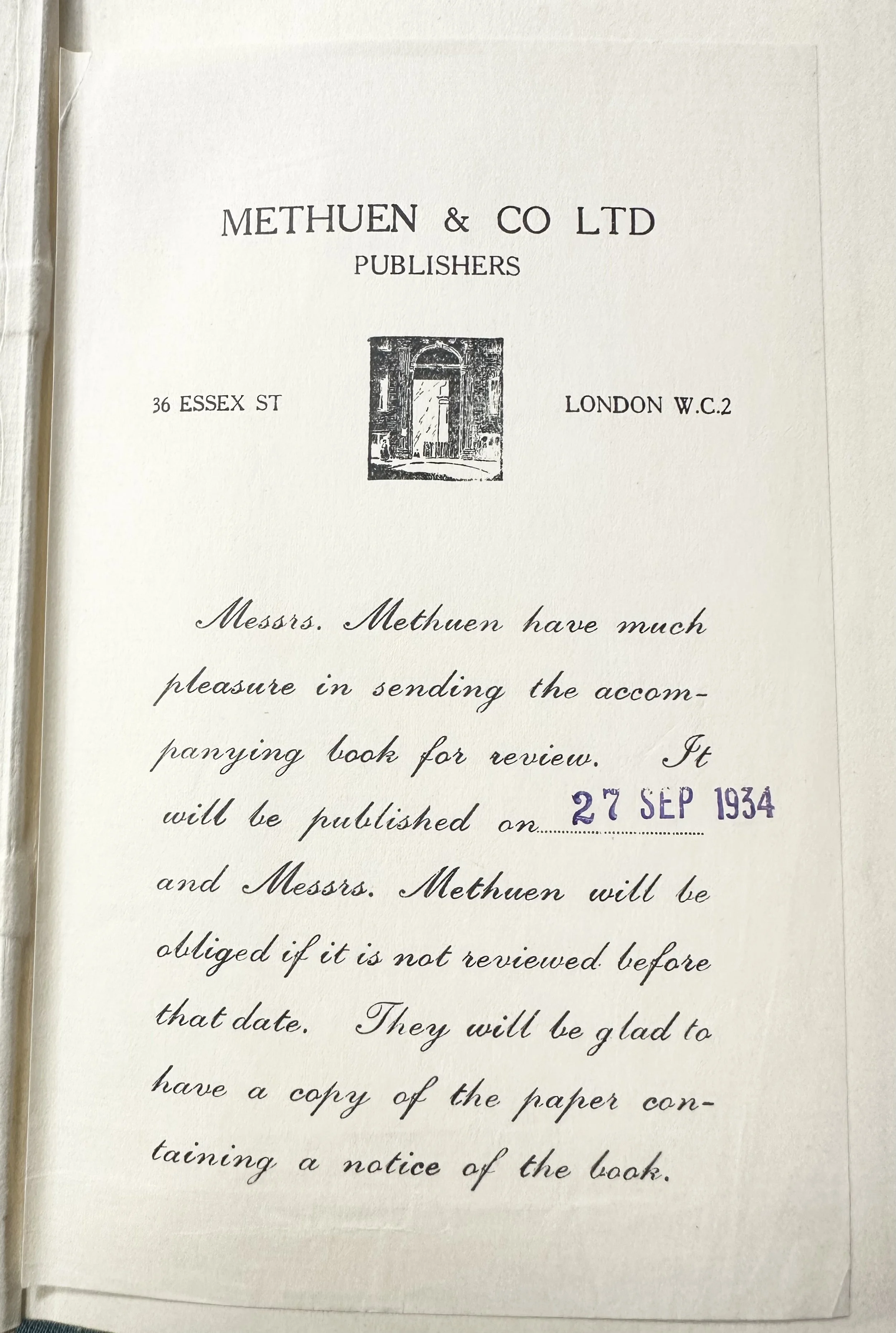 Image 1 of 4
Image 1 of 4

 Image 2 of 4
Image 2 of 4

 Image 3 of 4
Image 3 of 4

 Image 4 of 4
Image 4 of 4





SILONE, Ignazio. Fontamara
SILONE, Ignazio. Fontamara. Trans. from the Italian by Gwenda David and Eric Mosbacher. London: Methuen. 1934. 8vo. First British edition. Publisher’s review copy with a review slip loosely inserted with stamped date of publication. Cream cloth lettered in red the spine and upper board, in the very pleasing dust jacket with the green, white , and red of the Italian flag at foreground, and ominous sketch and silhouette to the spine and front panels, the design signed indistinctly. A very good copy overall, the cloth clean, the spine tips and the corners pushed, the binding tight and gently rolled. The textblock edges very slightly spotted, the contents largely fine barring a few singular patchy stains and marks. The dust jacket priced 7/6 net to the spine panel, complete, the spine panel slightly faded, the corners, tips and along joints gently rubbed and slightly nicked, with discreet adhesive tape repairs to upper edges at verso. A pleasing copy overall. Scarce.
A cornerstone of anti-fascist literature, Ignazio Silone’s powerful debut novel is a scathing indictment on local authority; corrupt, merciless, immoral. Written while a refugee in Switzerland, the novel follows the lives of the peasants of Fontamara, a tiny, poverty-stricken village in northern Italy. Exploited by way of their primitive culture and lack of awareness beyond their own lifestyles, the government takes their land, women and children are raped, and come the denouement, most of the villagers are brutally executed. The prescient timing of its publication—in the midst of Fascist Italy, on the eve of the outbreak of the Spanish Civil War, and only a few months before the Nazis came to power—the novel proved an armament of anti-fascist ideals, the ring-bearer of twentieth century resistance. The book became an international bestseller, appearing in German translation in 1933, in the UK and USA in 1934, and across Europe and the world in the coming years, often running into multiple prints. Postwar, Silone was consistently tipped for the Nobel Prize for Literature, Murakamiesque, but never won. Scarce in the dust jacket.
SILONE, Ignazio. Fontamara. Trans. from the Italian by Gwenda David and Eric Mosbacher. London: Methuen. 1934. 8vo. First British edition. Publisher’s review copy with a review slip loosely inserted with stamped date of publication. Cream cloth lettered in red the spine and upper board, in the very pleasing dust jacket with the green, white , and red of the Italian flag at foreground, and ominous sketch and silhouette to the spine and front panels, the design signed indistinctly. A very good copy overall, the cloth clean, the spine tips and the corners pushed, the binding tight and gently rolled. The textblock edges very slightly spotted, the contents largely fine barring a few singular patchy stains and marks. The dust jacket priced 7/6 net to the spine panel, complete, the spine panel slightly faded, the corners, tips and along joints gently rubbed and slightly nicked, with discreet adhesive tape repairs to upper edges at verso. A pleasing copy overall. Scarce.
A cornerstone of anti-fascist literature, Ignazio Silone’s powerful debut novel is a scathing indictment on local authority; corrupt, merciless, immoral. Written while a refugee in Switzerland, the novel follows the lives of the peasants of Fontamara, a tiny, poverty-stricken village in northern Italy. Exploited by way of their primitive culture and lack of awareness beyond their own lifestyles, the government takes their land, women and children are raped, and come the denouement, most of the villagers are brutally executed. The prescient timing of its publication—in the midst of Fascist Italy, on the eve of the outbreak of the Spanish Civil War, and only a few months before the Nazis came to power—the novel proved an armament of anti-fascist ideals, the ring-bearer of twentieth century resistance. The book became an international bestseller, appearing in German translation in 1933, in the UK and USA in 1934, and across Europe and the world in the coming years, often running into multiple prints. Postwar, Silone was consistently tipped for the Nobel Prize for Literature, Murakamiesque, but never won. Scarce in the dust jacket.
